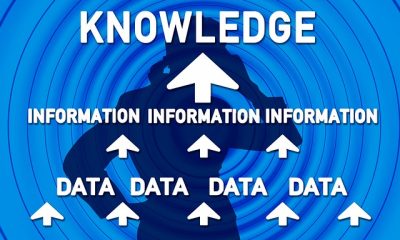A day after credit-reporting company Equifax disclosed that “criminals” had stolen vital data about 143 million Americans, it had somehow managed to leave much of the public in the dark about their exposure, how they should protect themselves and what Equifax planned to do for those affected.
Quick Link Use To See If You Are Effected: https://www.equifaxsecurity2017.com/enroll/
If you are effected, you will see a message similar to this below:
Based on the information provided, we believe that your personal information may have been impacted by this incident. Click the button below to continue your enrollment in TrustedID Premier
If you enroll into this program offered by Equifax, you may be signing off any rights to sue!
The breach is unquestionably serious. It exposed crucial pieces of personal data that criminals could use to commit identity theft, from Social Security numbers and birth dates to address histories and legal names.
That data — the “crown jewels of personal information,” in the words of independent credit analysts John Ulzheimer — can’t be changed, and once it’s in circulation, it’s basically out there forever.
But Equifax’s response has satisfied almost no one.
WHAT YOU CAN DO
Even if you don’t know if you’re one of the 143 million, you might want to consider extreme protective measures.
Your strongest immediate option involves placing a credit freeze on their files with the major credit bureaus. That locks down your information, making it impossible for outsiders to open new accounts and bank cards in your name. But it also blocks you from opening new accounts, and might involve fees depending on the state you live in.
“The credit freeze is the nuclear option of credit protection,” said Matt Schulz, an analyst with CreditCards.com. “But in the wake of a breach this big, it’s worth considering.”
You should also be more diligent about checking your credit reports, where you can see if anyone has opened unauthorized accounts in your name . You can get those files for free once a year from the three major bureaus; use the official site, annualcreditreport.com .
It’s best to spread those requests out by getting one every four months. And you’ll need to be ready to keep checking for a while — potentially years.
“Bad guys can be very patient with data,” Schulz said.
If you’re not ready for the freeze, Ulzheimer recommends setting up fraud alerts on your files. These force creditors to contact you directly, usually by phone, for approval before approving an account.
And if you’ve been a victim of repeated identity fraud, you can request a new Social Security number with the Social Security Administration.
In addition to the emergency Equifax website, https://www.equifaxsecurity2017.com/, you can also call 866-447-7559 for information. The company also says it will send mail to all who had personally identifiable information stolen.
Before you sign up for Equifax credit protection offer, thank twice you may be signing off any rights to sue. I would suggest using a different credit protection and monitoring service.
Here are some other steps to take to help protect yourself after a data breach:
- Check your credit reports from Equifax, Experian, and TransUnion — for free — by visiting annualcreditreport.com. Accounts or activity that you don’t recognize could indicate identity theft. Visit IdentityTheft.gov to find out what to do.
- Consider placing a credit freeze on your files. A credit freeze makes it harder for someone to open a new account in your name. Keep in mind that a credit freeze won’t prevent a thief from making charges to your existing accounts.
- Monitor your existing credit card and bank accounts closely for charges you don’t recognize.
- If you decide against a credit freeze, consider placing a fraud alert on your files. A fraud alert warns creditors that you may be an identity theft victim and that they should verify that anyone seeking credit in your name really is you.
- File your taxes early — as soon as you have the tax information you need, before a scammer can. Tax identity theft happens when someone uses your Social Security number to get a tax refund or a job. Respond right away to letters from the IRS.
About Equifax:
Equifax Inc. is a consumer credit reporting agency in the United States, considered one of the three largest American credit agencies along with Experian and TransUnion













